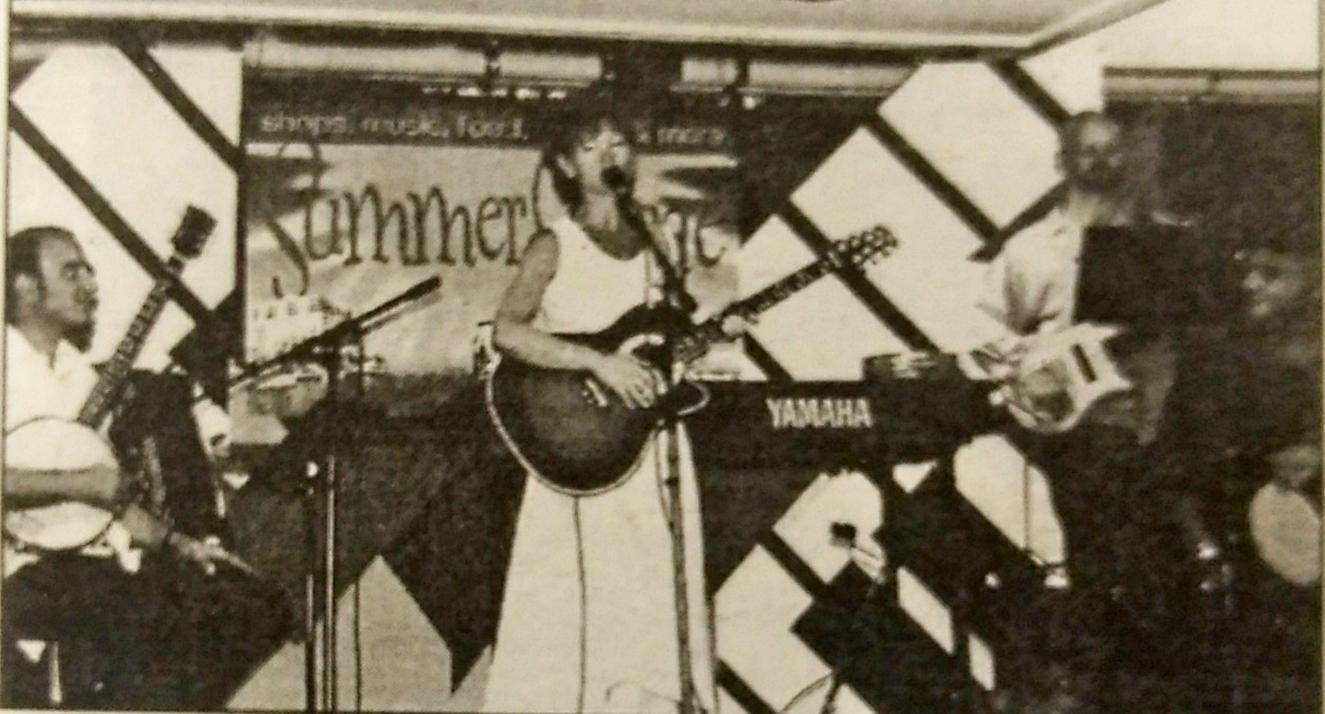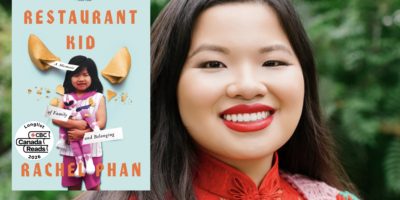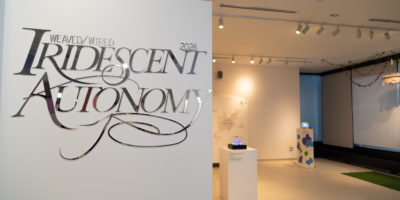By John Beresford
When celebrities come to Ryerson, administration usually makes a big deal of it. All the media outlets are notified, and president Claude Lajeunesse is always there to pose for photographs.
However, there’s one celebrity who comes to Ryerson each and every day, but remains virtually unnoticed by administration. Lenka Lichtenberg is a professor of music history and an up-and-coming singer/songwriter with a loyal fanbase in Toronto and parts of Europe.
Lichtenberg’s sone “Joy” was part of a compilation CD given to students during this year’s frosh week.
“Joy” is the single off her debut album, Deep Inside, released in June. Lichtenberg says she could have released an album much sooner, but she found herself moving from one place to another every time she had material ready to go.
Deep Inside is categorized as “new Jewish music,” and can be found in the world beat section at Sam the Record Man because of its use of Middle Eastern and Eastern European sounds.
A little off the beaten path, Lichtenberg doesn’t expect the mainstream to embrace her music. MuchMusic would be nice, she says, but she’ll settle for some air time on CBC radio.
Half of the songs on Deep Inside are her own, written in English. The other half are traditional but with a modern spin, written in Yiddish, English and Hebrew/Ladino.
The album is produced by Juno award-winning producer and musician Ken Whiteley, who has helped out children’s entertainer Raffi in his early days.
Some people have said Lichtenberg’s music isn’t as devoted to her faith as it should be. Her song “One Day, A Conversation,” about tension between Hasidic and secular Jews, angered one man when he heard it on the University of Western Ontario’s radio station. He accuses Lichtenberg of aggravating differences within the Jewish community.
“They don’t talk to me because in there eyes I’m like a black sheep,” says Lichtenberg, who in “Conversation” sings about troubles with a neighbour.
Liza Cooperman, a National Post music reviewer, wrote about Deep Inside in June, praising the music but calling Lichtenberg’s lyrics in “The Child of Survivors” “painfully cliched.”
“I’m talking in a simplistic way,” Lichtenberg says, “because it’s written from the point of view of a child who’s going to worry about the little daily facts of life that they’re missing, not the end of the Jewish faith.”
Half the lyrics come from a letter her mother, giving the song vibrancy when she sings live.
“I get an unbelievable response because it’s so straight-forward, accessible and easy to understand,” Lichtenberg says. “[Cooperman] may call it a cliche — I call it understandable.”
Being open to other religions is another side of Lichtenberg’s secular “Jewishness.”
“There are a lot of traditions I really enjoy learning now as an adult, because I was brought up as a little atheist,” she says.
By the age of eight, Lichtenberg was a star in Czechoslovakia, singing in the famous theatre Semafor and recording with Jiri Suchy, Prague’s equivalent to Leonard Cohen.
That’s about the time she first learned of her Jewish heritage. Her mother, who lost most of her family in the Holocaust blamed everything bad that happened to her on being Jewish, and wanted to keep her daughter away from her culture.
So when the local community centre requested that the child star sing at Jewish celebrations, Lichtenberg had to start from scratch. Knowing nothing about Yiddish and Hebrew, she learned the lyrics to a dozen songs, but didn’t know what she was singing.
Musical exploration has always been Lichtenberg’s driving passion. In British Columbia, where she competed studies in music theory, she sang in lounges and then with a rock and roll band.
After a stint singing on cruise lines, she took a trip to Israel and suddenly her childhood flirtation with the Jewish culture bloomed. “I said, ‘Okay, I’ve got it all wrong and I have to do something about this identity of mine.’”
Since she now teaches at Ryerson full-time, Lichtenberg hasn’t had much spare time to promote Deep Inside. But in the summer she went to Prague to perform for a sold-out crowd.
At the Ford Centre for Performing Arts later in the summer, she had another capacity crowd singing along with her.
And just a week before school started, she performed at the Ashkenaz, a festival of Yiddish culture.
In total, Lichtenberg has sold about 400 copies of Deep Inside in Europe, Australia, the U.S. and Canada — not bad considering she doesn’t have an official distributor yet. Over the winter break, she plans to begin promoting the album and call about 200 outlets waiting to hear from her.
Until then, Lichtenberg is teaching three sections of introduction to world and early European music.
“I absolutely love it,” she says. “You’re opening the eyes of people who are pretty new to this in some ways, and it’s just because they’re interested. The whole feeling of it really is wonderful.”
Next summer Lichtenberg plans to hit festivals in Amsterdam, Vancouver, Kingston and Hamilton. But before that, she wants to hold a concert in Toronto sometime this winter.













Leave a Reply